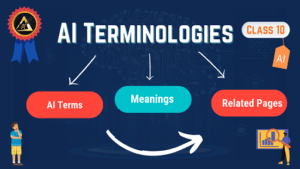Artificial Intelligence (AI) is transforming the way we interact with technology and the world around us. It’s a dynamic field with a unique language all its own. In this article, we’ll explore the essential AI words, terms, and concepts that you need to know to navigate the ever-evolving world of artificial intelligence. Whether you’re a seasoned AI professional or just getting started, this guide will be a valuable resource.
Understanding AI Terminology

AI terminology can be quite complex, so let’s break it down into digestible sections to make it easier to grasp. Here are some of the key AI words and phrases you should be familiar with:
- Artificial Intelligence (AI)
- AI refers to the simulation of human intelligence in machines that are programmed to think and learn like humans. It encompasses various subfields, including machine learning and deep learning.
- Machine Learning (ML)
- Machine learning is a subset of AI that focuses on teaching computers how to learn from data and improve their performance without being explicitly programmed. It’s the backbone of many AI applications.
- Deep Learning
- Deep learning is a specialized subset of machine learning that uses artificial neural networks to model and solve complex problems. It has led to breakthroughs in areas such as image and speech recognition.
- Neural Networks
- Neural networks are algorithms inspired by the structure and function of the human brain. They consist of interconnected nodes, or “neurons,” that process information.
- Natural Language Processing (NLP)
- NLP is a field of AI that focuses on the interaction between humans and computers through natural language. It enables machines to understand, interpret, and generate human language.
- Big Data
- Big data refers to vast datasets that are too large and complex to be processed with traditional data processing applications. AI uses big data to derive insights and make predictions.
- Algorithm
- An algorithm is a set of rules and instructions for solving a specific problem or performing a task. In AI, algorithms are crucial for data analysis and decision-making.
- Training Data
- Training data is the information used to teach AI models. It’s a critical component of machine learning, as models learn patterns and make predictions based on this data.
- Supervised Learning
- Supervised learning is a type of machine learning where models are trained on labeled data, allowing them to make predictions or decisions based on patterns they’ve learned.
- Unsupervised Learning
- Unsupervised learning involves training models on unlabeled data, and the goal is often to discover hidden patterns or structures within the data.
- Reinforcement Learning
- Reinforcement learning is a type of machine learning where an AI agent learns through trial and error, receiving rewards or penalties for its actions in an environment.
- AI Ethics
- AI ethics deals with the moral and ethical implications of AI technology, including issues related to bias, transparency, and privacy. Chatgpt Plus Free Trial
Applications of AI
AI words are not just theoretical concepts; they power a wide range of real-world applications. Here are some examples:
- Virtual Assistants: Virtual assistants like Siri, Alexa, and Google Assistant use NLP to understand and respond to natural language queries.
- Recommendation Systems: E-commerce platforms and streaming services employ AI to suggest products and content based on user preferences.
- Autonomous Vehicles: Self-driving cars use AI to make real-time decisions and navigate safely on the road.
- Healthcare: AI is used for medical image analysis, drug discovery, and even predicting disease outbreaks.
- Finance: AI-driven algorithms are employed for fraud detection, stock trading, and risk assessment.
- Customer Support: Chatbots and AI-powered customer support agents assist in resolving customer inquiries.
- Manufacturing: AI-controlled robots and systems optimize production processes and quality control.
Challenges and Future Trends
As the AI field continues to evolve, new challenges and trends emerge. Here are some noteworthy ones:
- Ethical Concerns: The responsible development and use of AI is a growing concern, with a focus on preventing bias and ensuring transparency.
- Explainable AI: Researchers are working on making AI systems more interpretable and able to explain their decisions.
- Quantum Computing: Quantum computing has the potential to revolutionize AI by solving complex problems at an unprecedented speed.
- AI in Healthcare: The use of AI in healthcare is expanding, with applications in disease diagnosis, drug development, and telemedicine.
- AI and Climate Change: AI is being leveraged to address environmental challenges, such as climate modeling and energy optimization. Chatgpt Plus Free Trial
Artificial intelligence has become an integral part of our lives, and understanding the key AI words and concepts is essential for navigating this dynamic field. As technology continues to advance, staying informed about the latest developments and ethical considerations will be crucial. Whether you’re an AI practitioner, a business leader, or simply someone interested in the future of technology, this guide provides a solid foundation for exploring the world of AI. Keep learning, stay curious, and embrace the exciting possibilities that AI has to offer.





